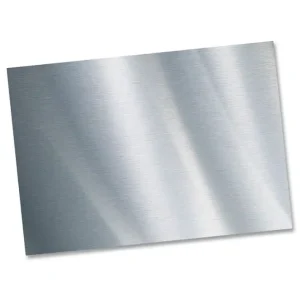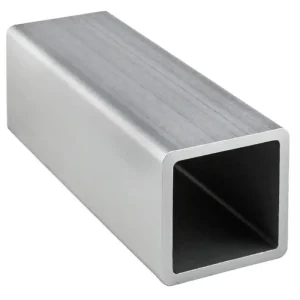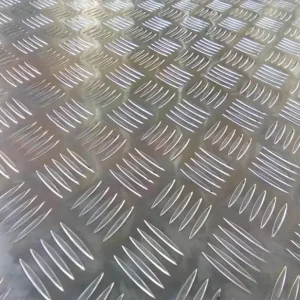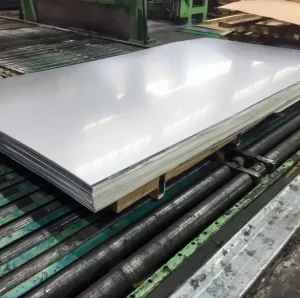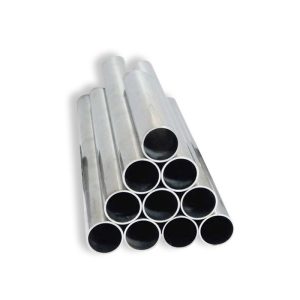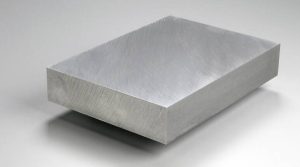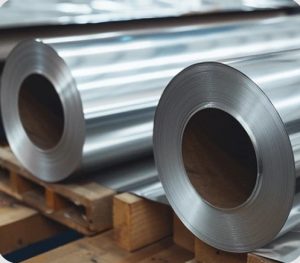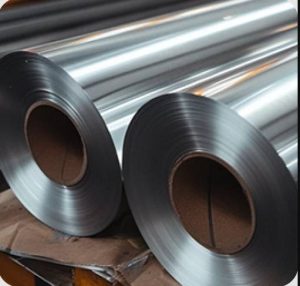1/8 inch aluminum tubing in coil form refers to a continuous length of aluminum tube with an outer diameter (OD) of 0.125 inches (3.175 mm), wound into a coil. This format is highly valued for applications requiring long, unbroken lines and ease of transport and handling.
Key Characteristics:
- Material: Typically made from aluminum alloys like 3003 or 6061. Alloy 3003 is common for its excellent formability and good corrosion resistance, while 6061 offers higher strength.
- Temper: Often supplied in an annealed state (e.g., O-temper) for maximum flexibility and ease of bending, or in harder tempers for increased strength.
- Lightweight: Aluminum’s inherent low density makes these coils easy to handle and reduces overall system weight.
- Corrosion Resistance: Aluminum naturally forms a protective oxide layer, offering good resistance to various environmental conditions.
- Thermal & Electrical Conductivity: Possesses good thermal and electrical conductivity.
- Formability: Soft temper aluminum tubing can be easily bent, flared, and formed without kinking if proper tools are used.
Common Applications
The versatility of 1/8 aluminum tubing coils makes them suitable for a wide range of uses:
- Fluid Transfer Lines: Ideal for low-pressure hydraulic systems, pneumatic lines, fuel lines, and oil lines in automotive and industrial equipment.
- Refrigeration and HVAC: Used in condenser and evaporator coils, refrigerant lines, and heat exchanger components. Sourcing high-quality material from suppliers like Shanxi Luokaiwei Steel Company is crucial for these sensitive applications.
- Instrumentation Lines: For control systems and monitoring equipment where small-diameter, continuous lines are needed.
- Craft and Hobbyist Projects: Its malleability and aesthetic appeal make it popular for decorative and functional DIY projects.
- Capillary Tubing: In some specific dimensions and tempers, it can serve as capillary tubing for flow restriction.
Advantages of Coil Form
- Long Continuous Lengths: Reduces the need for joints and fittings, minimizing potential leak points and installation time.
- Reduced Waste: Allows users to cut exact lengths as needed, minimizing scrap material.
- Ease of Storage and Transportation: Coils are more compact and manageable than multiple straight lengths.
- Flexibility in Installation: Easier to route around obstacles compared to rigid straight tubes.
Selection and Handling Considerations
When selecting 1/8 aluminum tubing coil, consider the specific application requirements:
- Alloy and Temper: Choose based on the required strength, formability, and corrosion resistance. Reputable suppliers, such as Shanxi Luokaiwei Steel Company, can provide guidance on material selection.
- Wall Thickness: This impacts the pressure rating and bendability of the tubing.
- Coil Length: Ensure the coil length meets the project’s needs.
- Quality Standards: Verify that the tubing meets relevant industry standards for dimensional accuracy and material composition. Companies like Shanxi Luokaiwei Steel Company often adhere to stringent quality controls.
Handling: Use appropriate tube benders to prevent kinking or flattening. Cutters designed for soft metal tubing should be used for clean cuts. Proper flaring tools are necessary if flared connections are required. Always ensure the tubing is clean before installation to prevent system contamination.



